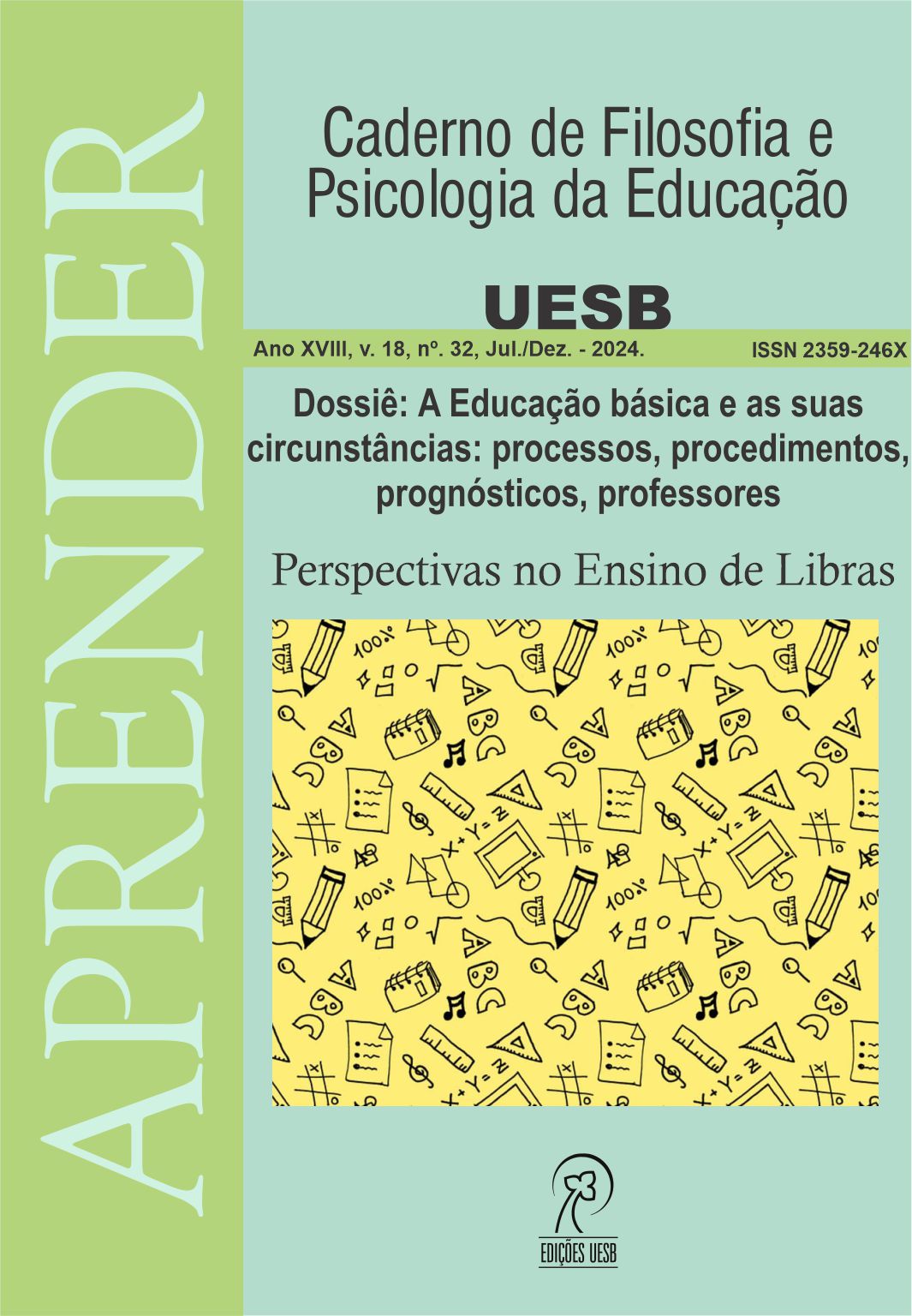Inclusive Education from the perspective of international and national research: a theoretical and empirical dialogue
DOI:
https://doi.org/10.22481/aprender.i32.15339Keywords:
Education, Pedagogy, Psychology, Inclusion, RightAbstract
The relevance of dialoguing an international theoretical study from the USA with the national empirical study from Brazil on conceptual analyses, future research and inclusive strategies for groups with distinct social markers of differences with their ethnic-racial, intersectional and disability relations. They were discussed during the period of face-to-face classes through an elective discipline of the stricto sensu postgraduate course in education at the State University of Santa Catarina (UDESC) taught by two Professors Geisa Bock and Raquel Fröhlich. The discussions were held with the hope that it is possible to carry out future research when a detailed look at the special needs of vulnerable groups for educational progress is obtained. The article encourages the awareness of researchers and education professionals with international critical notes and inspirations for collaborative practices in their future research, contributing to the constancy of the debate in the face of the purposes of social equity before the principles of Inclusive Education.
Downloads
References
ANADÓN, Marta Elisa. Novas dinâmicas na pesquisa educativa e formação continuada dos docentes: modelos participativos. In: Baldi, Elena Mabel; Fereira, Maria Salonilde; Paiva, Marlúcia (Orgs.) Epistemologia das ciências da educação. Natal: EDUFRN, 2009, p. 117-131.
ARTILES, Alfredo J. et al. Learning in inclusive education research: re-mediating theory and methods with a transformative agenda. Review of Research in Education, v. 30, n. 1, p. 65-108, 2006.
ARTILES, Alfredo J.; WAITOLLER, F.; NEAL, R. Grappling with the intersection of language and ability differences: equity issues for Chicano/Latino students in special education. In: Valencia, R. R. (Ed.). Chicano school failure and success: past, present, and future. 3. ed. London: Routledge/Falmer, 2011. p. 213-234.
ARTILES, Alfredo J.; KOZLESKI, Elizabeth B. Inclusion’s promises and trajectories: Critical notes about future research on a venerable idea. Education Policy Analysis Annuals: 24 (3), 2016.
BISOL, Cláudia Alquati; VALENTINI, Carla Beatriz. Surdez e Deficiência Auditiva - qual a diferença?. Objeto de Aprendizagem Incluir – UCS/FAPERGS, 2011. Disponível em: https://encurtador.com.br/jqCY2; Acesso em: 25 ago., 2020.
EREVELLES, N. Disability and difference in global contexts: enabling a transformative body politic. New York: Palgrave Macmillan, 2011a.
FERGUSON, D. L.; KOZLESKI, E. B.; SMITH, A. Transformed, inclusive schools: a framework to guide fundamental change in urban schools. Washington: Elsevier Science, 2003.
FIORIN, José Luiz.; SAVIOLI, Francisco Platão. Para entender o texto: leitura e redação. São Paulo: Ática, p. 424, 1990.
GRAFF, C. S.; KOZLESKI, E. Calcifying, sorting and segregating: brown at 60. Multiple Voices, v. 14, n. 2, p. 52-67, 2014.
GOTTFRIED, M. A. Classmates with disabilities and students’ noncognitive outcomes. Educational Evaluation and Policy Analysis, v. 36, n. 1, p. 20-43, 2014.
HAHN, H. Disputing the doctrine of benign neglect: a challenge to the disparate treatment of Americans with disabilities. In: Francis, L. P.; Silvers, A. (Eds.). Americans with disabilities. New York: Routledge, 2000. p. 269-274.
MCDERMOTT, R.; EDGAR, B.; SCARLOSS, B. Global norming. In: ARTILES, A.; KOZLESKI, E.; WAITOLLER, F. (Eds.). Inclusive education: examining equity on five continents. Cambridge: Harvard Education Press, 2011. p. 223-235.
NARAIAN, S. Disability, agency, and context: a differential consciousness for doing inclusive education. Curriculum Inquiry, v. 43, p. 360-387, 2013.
NASCIMENTO, Grazielly Vilhalva Silva do. Educação, inclusão e TICs: o uso de Tecnologias da Informação e Comunicação como recurso para inclusão de deficientes auditivos. 2013. 167 f. Dissertação (Mestrado em Educação) – Faculdade de Educação, Universidade Federal da Grande Dourados, Dourados, MS, 2013.
SAILOR, W.; GEE, K.; KARASOFF, P. Full inclusion and school restructuring. In: SNELL, M. (Ed.). Instruction of students with severe disabilities. New York: Macmillan, 1993. p. 1-30.
SILBEY, Susan S. After Legal Consciousness. Annual Review of Law & Social Science (2005), Vol. 1, p. 323-368, 2005.
SILVA, Diogo Fernando da. Imagem Mental na Elaboração de Conceitos de Língua Portuguesa por Estudantes com Deficiência Auditiva no Ensino Fundamental. 119 f. Dissertação (Mestrado) - Programa de Pós-graduação em Educação, Universidade do Vale do Itajaí, Itajaí/SC, 2022.
SLEE, Roger. The irregular school: exclusion, schooling, and inclusive education. Abingdon, England: Routledge, 2011.
SKIBA, R. J. et al. Achieving equity in special education: History, status, and current challenges. Exceptional Children, v. 74, n. 3, p. 264-288, 2008.
SRIVASTAVA, M.; BOER, de. A.; PIJL, S. J. Inclusive education in developing countries: A closer look at its implementation in the last 10 years. Educational Review, v. 67, n. 2, p. 179-195, 2015.
THURLOW, M. L.; KOPRIVA, R. J. Advancing accessibility and accommodations in content assessments for students with disabilities and English learners. Review of Research in Education, v. 39, p. 331-369, 2015.
WAITOLLER, F. W.; KOZLESKI, E. B. No stone left unturned: exploring the convergence of new capitalism in inclusive education in the U.S. Education Policy Analysis Annuals, v. 23, n. 37, p. 1-33, 2015.
YELL, M. The Law and Special Education. Hoboken: Pearson. 2015.
Downloads
Published
How to Cite
Issue
Section
License
Copyright (c) 2024 APRENDER - Caderno de Filosofia e Psicologia da Educação

This work is licensed under a Creative Commons Attribution-ShareAlike 4.0 International License.






